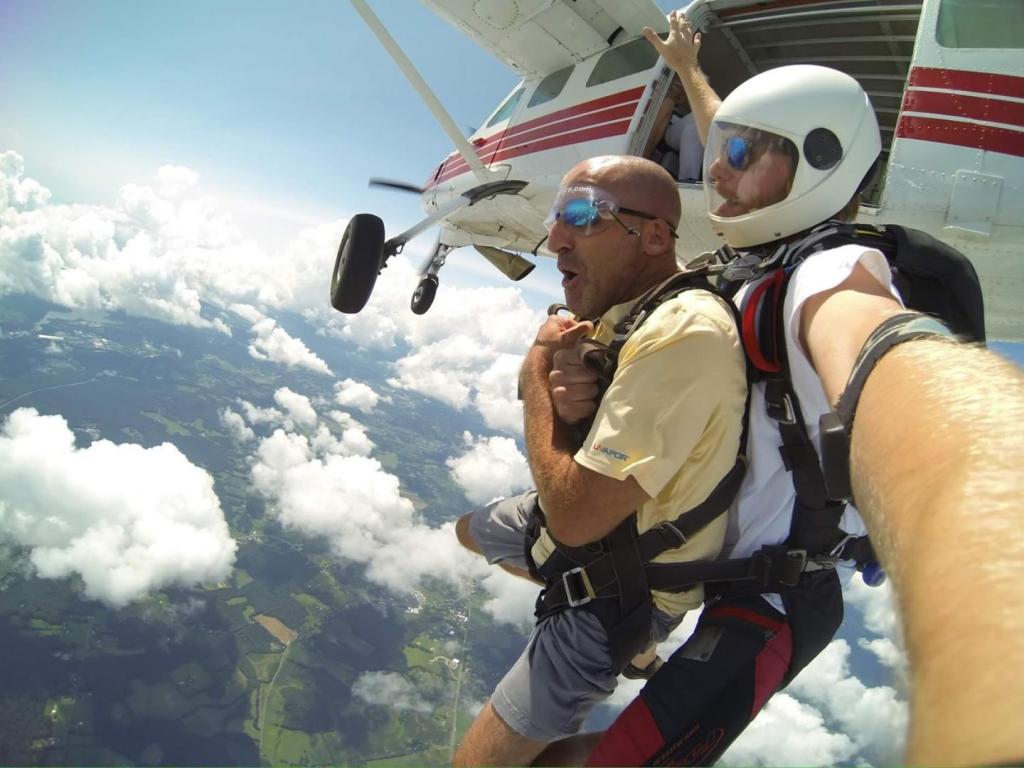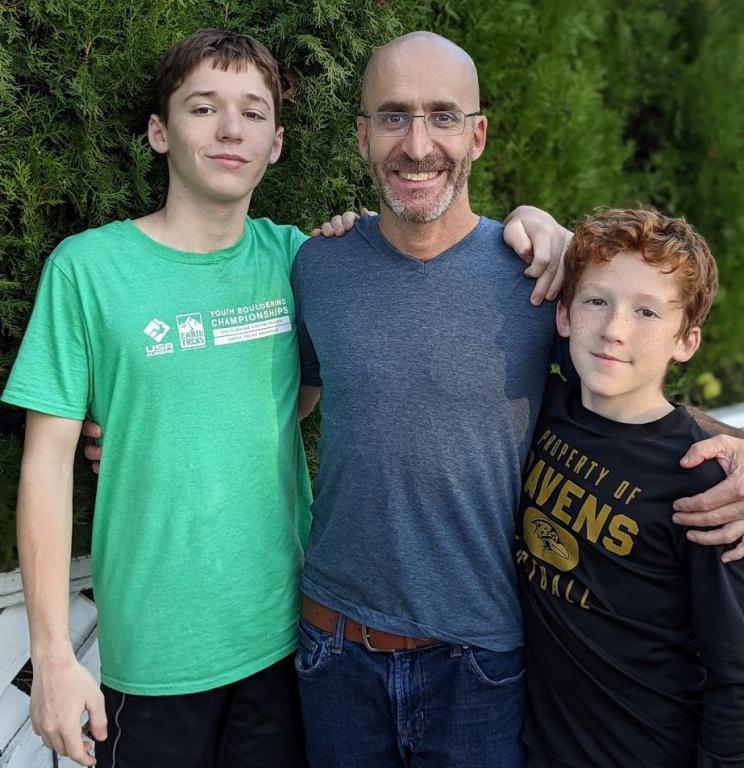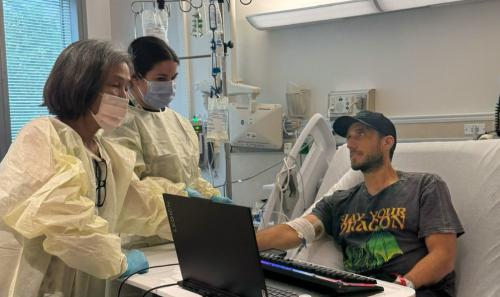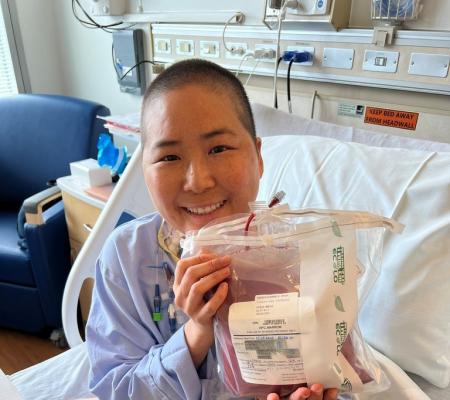
-
Understanding primary immunodeficiency (PI)

Understanding PI
The more you understand about primary immunodeficiency (PI), the better you can live with the disease or support others in your life with PI. Learn more about PI, including the various diagnoses and treatment options.
-
Living with PI
-
Addressing mental health
-
Explaining your diagnosis
- General care
- Get support
- For parents and guardians
-
Managing workplace issues
- Navigating insurance
-
Traveling safely

Living with PI
Living with primary immunodeficiency (PI) can be challenging, but you’re not alone—many people with PI lead full and active lives. With the right support and resources, you can, too.
-
Addressing mental health
-
Get involved

Get involved
Be a hero for those with PI. Change lives by promoting primary immunodeficiency (PI) awareness and taking action in your community through advocacy, donating, volunteering, or fundraising.
-
Advancing research and clinical care
-
Research Grant Program
-
Consulting immunologist
-
Diagnosing PI
-
Getting prior authorization
-
Clinician education
-
Survey research
-
Participating in clinical trials

Advancing research and clinical care
Whether you’re a clinician, researcher, or an individual with primary immunodeficiency (PI), IDF has resources to help you advance the field. Get details on surveys, grants, and clinical trials.
-
Research Grant Program
Robert Karp enjoys a good physical challenge. Paddleboarding, racquetball, tennis, scuba diving, and sky diving are among his list of favorite activities, along with his current passion - indoor rock climbing. He’s even participated in 5K mud runs, a jog (or slog) through mud pits and other obstacles. For Robert, diagnosed with chronic granulomatous disease, a mud run in particular might seem risky. The 50-year-old said it’s all about living your life within parameters.

“The thing that people don’t understand is that there’s a lot of misinformation out there. A person with CGD can live an extremely normal life - you just have to be smart about it. It doesn’t have to be that restrictive,” said Robert.
A Goucher College graduate, Robert is an academic advisor at Towson University, and he has worked at the institution since 2005. He is father to two sons - Leo, 12, and Trevor, 15.
Robert said he makes an effort to counsel families with young children who have CGD. He urges parents to allow their children to be more active.
“I hear stories all the time, that’s why I like to talk to young families with CGD. They treat their children like they’re in a bubble, but they don’t have to,” said Robert.
Doctors diagnosed Robert with X-linked CGD in infancy before infections developed. They knew he was at risk, as his older brother Philip also had primary immunodeficiency.
The brothers tried to stay healthy with the medicine available at that time, and eventually the development of the antibiotic Bactrim brought much-needed protection.
“Life really turned around for us when we started having access to Bactrim,” said Robert, who was a toddler when he first used the antibiotic. “It helped prevent major infections until we came to the States, and then things got more difficult because as you get older with CGD, more infections develop.”
At age 6, Robert and his family moved from their home in Johannesburg, South Africa to Knoxville, Tennessee. The brothers attended school and continued to struggle with infections. Their pediatrician recommended they visit the National Institute of Health in Washington, D.C. to seek treatment.
Robert distinctly recalls a trip he took with his mother to D.C. when he was about 11 that changed the trajectory of their lives. He and his mom were visiting the Smithsonian National Air and Space Museum as a side trip.
“I bumped my back against a railing, and I felt something pea-sized on my back,” said Robert. “It turns out that there was a major infection in my spine and lower brain, and I was admitted to the hospital for four or five months, on IV antibiotics. It was almost fatal.”
Robert’s mother decided to move the family to Rockville, Maryland where they could be closer to the NIH. The brothers participated in studies on interferon, which they took throughout their teen years.
“We were very fortunate to be involved with the NIH. They saved our lives countless times,” said Robert.
Still, Robert and Philip developed many infections from ages 11 to 20 years old. Sometimes, doctors performed major surgery to remove and biopsy areas of infection to determine the type of antibiotic that would be most effective in fighting it.
While Robert’s parents explained the reasons for their sons’ lengthy absences from school to administrators, it wasn’t so easy for the brothers to discuss their PI with peers.
“It was a much harder conversation with my friends. They wondered if it was contagious,” he said. “I kept it to myself, but my close friends knew.”

Over the years, antibiotics have improved, said Robert, reducing his need for hospitalizations. His last major infection - which required surgery, a month in the hospital, and IV antibiotics for six months - was in 2009. Today, Robert takes Bactrim and an anti-fungal as prophylactic treatment.
“The only thing is, because my brother and I have had so much treatment in our lives, our bodies are ten years above our age. We both have the normal aches and pains with age, but it just feels a little more severe,” said Robert.
Being a role model for youth is important to Robert and he recently participated in IDF’s Career Night for teens.
“It’s important that they live within the parameters of their treatments and prophylactics. If you do that, and be careful, you can have a very normal life,” he said.
Related resources

Man with X-linked hyper IgM first-ever to receive novel gene therapy

Pharmacist with CVID receives bone marrow transplant

Undiagnosed: Reuben & Sherri Johnson on CGD, chronic illness, and the fight for healthcare
Sign up for updates from IDF
Receive news and helpful resources to your cell phone or inbox. You can change or cancel your subscription at any time.





The Immune Deficiency Foundation improves the diagnosis, treatment, and quality of life for every person affected by primary immunodeficiency.
We foster a community that is connected, engaged, and empowered through advocacy, education, and research.
Combined Charity Campaign | CFC# 66309

